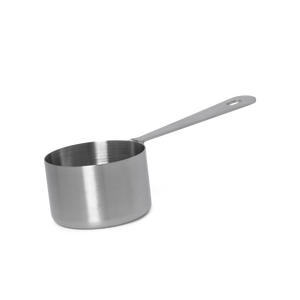Updated on October 7th, 2024

Plenny Bar is a 100% vegan meal bar that’s exactly 400 kcal. It’s made of natural and plant-based ingredients like oats, rice, soy, rapeseed oil, brown flaxseed, and chicory fibre. We’ve also added our custom blend of 26 vitamins & minerals and probiotics. As a result, each bar contains a whopping 175 health benefits. And no, that’s no typo! That’s backed up by research from the European Food Safety Authority.
You can get Plenny Bar in 7 delicious flavours.
- Vanilla
- Chocolate
- Caramel Sea Salt
- Almond & Fig
- Apfelstrudel
- Cherry
- Lemon Pie
At this point, you are probably wondering what exactly is inside the bar. Well, keep reading!
Nutritional breakdown
|
Vanilla |
Chocolate |
Caramel Sea Salt |
||||
|
Nutrition |
Value |
%RI |
Value |
%RI |
Value |
%RI |
|
Energy |
400 kcal |
20% |
400 kcal |
20% |
400 kcal |
20% |
|
Protein |
20 g |
40% |
20 g |
40% |
20 g |
40% |
|
Fat |
17 g |
24% |
18g |
26% |
18 g |
26% |
|
From which saturated fats |
1,4 g |
7% |
1,7 g |
9% |
1,4 g |
7% |
|
Carbohydrate |
38 g |
15% |
38 g |
15% |
37 g |
14% |
|
From which sugar |
4,9 g |
5% |
4,7 g |
5% |
4,3 g |
5% |
|
Fibres |
7,9 g |
8,1 g |
8,6 g |
|||
|
Almond & Fig |
Apfelstrudel |
Cherry |
|||||
|
Nutrition |
Value |
%RI |
Value |
% RI |
Value |
%RI |
|
|
Energy |
400 kcal |
20% |
400 kcal |
20% |
400 kcal |
20 % |
|
|
Protein |
20 g |
40% |
20 g |
40% |
20 g |
40% |
|
|
Fat |
18 g |
26% |
18 g |
26% |
18 g |
26% |
|
|
From which saturated fats |
1,7 g |
9% |
1,4 g |
7% |
1,4 g |
7% |
|
|
Carbohydrate |
37 g |
14% |
39 g |
15% |
38 g |
15% |
|
|
From which sugar |
8,4 g |
9% |
7,0 g |
8% |
7 g |
8% |
|
|
Fibres |
7,9 g |
8,2 g |
7,5g |
||||
|
Lemon Pie |
|||
|
Nutrition |
Value |
%RI |
|
|
Energy |
400 kcal |
20% |
|
|
Protein |
21 g |
42% |
|
|
Fat |
19 g |
27% |
|
|
From which saturated fats |
1,4 g |
7% |
|
|
Carbohydrate |
36 g |
14% |
|
|
From which sugar |
4,5 g |
5% |
|
|
Fibres |
8,3 g |
||
Ingredients
All Plenny Bar flavours contain the following ingredients:
- Oats
- Dehydrated rice extract
- Soy protein crisp (soy protein isolate, tapioca starch, stabiliser: calcium carbonate, salt)
- Rapeseed oil
- Milled brown flaxseed
- Soy protein isolate
- Humectant: glycerine
- Chicory fibre
- Rice syrup
- Custom blend of 26 vitamins and minerals
- Natural flavouring
- Probiotic: Bacillus coagulans
- Sweetener: sucralose
Depending on the flavour, Plenny Bars can also contain:
- Real fruit
- Nuts
- Cacao nibs and cocoa powder
- Sea salt
Protein
Protein functions as essential building blocks for different structures in your body. To ensure that you get enough of this nutrient, the European Food Safety Authority recommends an amount of 0,83 grams of protein per kg body weight per day [1, 2].
Plenny Bar contains 20g of protein per serving, which fits perfectly within this recommendation. The main source of protein is soy, which is considered the best vegan protein source due to its digestibility and absorption rate, and because it contains all nine essential amino acids. You can read more about this here!
Per portion (100g)
|
Amino Acid |
Mg per portion* |
% from the WHO daily recommended intakes** |
|
Alanine |
897 |
- |
|
Arginine |
1530 |
- |
|
Aspartic Acid |
2190 |
- |
|
Glutamic Acid |
4200 |
- |
|
Glycine |
903 |
- |
|
Hystidine |
535 |
76% |
|
Isoleucine |
911 |
65% |
|
Leucine |
1620 |
59% |
|
Lysine |
1220 |
58% |
|
Methionine + Cysteine |
562 |
54% |
|
Phenylalanine + Tyrosine |
1765 |
101% |
|
Proline |
946 |
- |
|
Serine |
1170 |
- |
|
Threonine |
944 |
90% |
|
Tryptophan |
283 |
101% |
|
Valine |
1020 |
56% |
*latest laboratory results
**based on an average adult (70kg). The requirements are determined by the person’s weight.
Fat
Among other things, fat contributes to a well-functioning brain and muscles. That’s why Plenny Bars have an average of 18 grams of fat per serving [3]. Although oats and soy bring a little bit of fat to the mix, rapeseed oil is high in monounsaturated fats, containing more omega 9 than omega 6. It also provides omega-3, which when combined with flaxseed provides 1480mg per meal.
Carbohydrates
Carbohydrates provide your body with glucose, the main source of energy for your body. A daily intake of around 130 grams is recommended [4,5]. One Plenny Bar contains approximately 38 grams of carbohydrates, which fits perfectly within this recommendation. The main source of carbohydrates in Plenny Bars is oats.
As you may know, carbohydrates increase your blood sugar levels after digestion. This can be measured by the glycemic index, which is high when easily digestible carbohydrates are consumed, and lower when carbohydrates with a more complex structure are consumed [6,7]. Plenny Bar has a low GI of 33.8, which means a slow energy release: the carbohydrates will enter your bloodstream slowly and steadily. No energy peak or crash! In addition, oats are rich in beta-glucan, which slows down your digestion [8].
So what about sugar? Plenny Bars have an average of 4,8 grams of sugar per 100 grams. This is well below the recommended upper limit of 10 E% sugar [9]. The vanilla, chocolate, caramel sea salt and lemon pie bars are low in sugar. The fruity bars contain more sugar because of the natural sugars in the added fruit.
Fibre
With an average of 8 g fibre, Plenny Bar is high in fibre! The fibre comes from oats, chicory fibre, and soy protein crisps. Fibre increases satiety, helps with your digestion, and improves the health of your intestinal bacteria. Read more about that here!
Micronutrients
Every Plenny Bar has 26 vitamins and minerals in amounts that are ideal for absorption and recommended by the European Food Safety Authority [10]. These micronutrients play an important role in most of the processes happening in your body, such as cellular functions, neurotransmission, fluid balance, and tissue structure [11].
Can’t wait to benefit from the tasty and nutritional advantages of the Plenny Bar? Make your order here!
Per portion (100g)
|
Vitamins-Minerals |
Per portion |
RI* (%) |
|
|
Vitamin A |
160 |
μg |
20%* |
|
Vitamin D |
5.0 |
μg |
100%* |
|
Vitamin E |
4.0 |
mg |
33%* |
|
Vitamin K |
16 |
μg |
21%* |
|
Vitamin C |
40 |
mg |
50%* |
|
Thiamin |
0.40 |
mg |
36%* |
|
Riboflavin |
0.32 |
mg |
23%* |
|
Niacin |
3.6 |
mg |
23%* |
|
Vitamin B6 |
0.40 |
mg |
29%* |
|
Folic Acid |
60 |
μg |
30%* |
|
Vitamin B12 |
3.2 |
μg |
128%* |
|
Biotin |
10 |
μg |
20%* |
|
Pantothenic acid |
1.2 |
mg |
20%* |
|
Potassium |
400 |
mg |
20%* |
|
Chloride |
279 |
mg |
35%* |
|
Calcium |
185 |
mg |
23%* |
|
Phosphorus |
140 |
mg |
20%* |
|
Magnesium |
75 |
mg |
20%* |
|
Iron |
3.2 |
mg |
23%* |
|
Zinc |
2.0 |
mg |
20%* |
|
Copper |
0.40 |
mg |
40%* |
|
Manganese |
1.0 |
mg |
50%* |
|
Selenium |
18 |
μg |
33%* |
|
Chromium |
8.0 |
μg |
20%* |
|
Molybdenum |
13 |
μg |
26%* |
|
Iodine |
30 |
μg |
20%* |
*% of the daily reference intake for vitamins and minerals
Last but not least, Probiotics
We wanted to add extra functional benefits to our meals. Probiotics came into our thoughts because of their ability to possibly enhance and strengthen our gut microbiome. Because of the high fibre content in Plenny bars, they have a symbiotic effect, meaning that probiotics become more resistant and provide a more substantial health effect thanks to the fibres which they eat and live from, so basically, one ingredient strengthens the other one, sweet right?
Can’t wait to benefit from the tasty and nutritional advantages of the Plenny Bar v3.0? Try today!
Sources
- European Food Safety Authority (EFSA). Scientific Opinion on Dietary Reference Values for Protein. EFSA Journal [Internet]. 2012 Feb;10(2):2557. Available from: https://efsa.onlinelibrary.wiley.com/doi/epdf/10.2903/j.efsa.2012.2557
- Voedingscentrum. Eiwitten | Voedingscentrum [Internet]. www.voedingscentrum.nl. Available from: https://www.voedingscentrum.nl/encyclopedie/eiwitten.aspx#blok7
- Burlingame B, Nishida C, Uauy R, Weisell R. Fats and Fatty Acids in Human Nutrition: Introduction. Annals of Nutrition and Metabolism [Internet]. 2009;55(1-3):5–7. Available from: https://pubmed.ncbi.nlm.nih.gov/19953704/
- Slavin J, Carlson J. Carbohydrates. Advances in Nutrition [Internet]. 2014 Nov 1;5(6):760–1. Available from: https://www.ncbi.nlm.nih.gov/pmc/articles/PMC4224210/
- Food and Nutrition Board of the Institute of Medicine. Dietary Reference Intakes for Energy, Carbohydrate, Fiber, Fat, Fatty Acids, Cholesterol, Protein, and Amino Acids (Macronutrients). Washington, D.C.: National Academies Press; 2005.
- Harvard Health Publishing. A Good Guide to Good carbs: the Glycemic Index - Harvard Health [Internet]. Harvard Health. Harvard Health; 2019. Available from: https://www.health.harvard.edu/healthbeat/a-good-guide-to-good-carbs-the-glycemic-index
- Lamothe LM, Lê KA, Samra RA, Roger O, Green H, Macé K. The Scientific Basis for Healthful Carbohydrate Profile. Critical Reviews in Food Science and Nutrition [Internet]. 2017 Nov 30;59(7):1058–70. Available from: https://pubmed.ncbi.nlm.nih.gov/29190114/
- Harvard T.H. Chan School of Public Health. Oats [Internet]. The Nutrition Source. 2019. Available from: https://www.hsph.harvard.edu/nutritionsource/food-features/oats/
- Reducing Free Sugars Intake in Children to Reduce the Risk of Noncommunicable Diseases [Internet]. www.who.int. 2023. Available from: https://www.who.int/tools/elena/interventions/free-sugars-children-ncds
- Regulation (EU) No. 1169/2011 of the European Parliament and of the Council on the Provision of Food Information to consumers. [Internet]. Nov 22, 2011. Available from: https://faolex.fao.org/docs/pdf/eur128444.pdf
- Harvard Health Publishing. Micronutrients Have Major Impact on Health - Harvard Health [Internet]. Harvard Health. Harvard Health; 2016. Available from: https://www.health.harvard.edu/staying-healthy/micronutrients-have-major-impact-on-health





















 Product added to cart
Product added to cart













